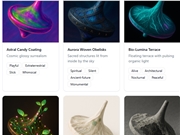Recently, a user shared a remarkable experience on Reddit, stating that the AI chatbot ChatGPT provided crucial help during a life-threatening moment by promptly diagnosing a rare kidney disease. This post quickly went viral, attracting attention and discussions from many users.
The user, with the username “Ananymous717,” felt unusually unwell after what seemed like a simple workout. He recalled, “About a week ago, I did what I thought was a low-intensity workout, but when I woke up, I felt like I had been hit by a truck.” After two days of persistent discomfort, he decided to consult ChatGPT for assistance.

Image Source Note: Image generated by AI, image licensed by Midjourney
After interacting with ChatGPT, the bot analyzed his symptoms and suggested he might be suffering from “moderate to severe rhabdomyolysis,” a rare condition where muscle breakdown releases proteins that can damage the kidneys. “It (ChatGPT) advised me to go to the hospital immediately because my symptoms matched moderate to severe rhabdomyolysis,” the user stated.
He immediately followed the advice and went to the hospital. After a series of laboratory tests, the results confirmed ChatGPT's diagnosis — he indeed had severe rhabdomyolysis. “The doctor examined me and found that my muscles were breaking down rapidly, and the proteins released could block my kidneys,” he added.
Rhabdomyolysis is usually caused by excessive exercise, trauma, or dehydration, and if not treated promptly, it can lead to kidney failure. Thanks to ChatGPT's timely suggestion, the user was hospitalized for a week and received the necessary treatment. He expressed gratitude for the technology, saying, “I had heard that ChatGPT saved many lives, but I didn't expect to be one of them. Thank you, ChatGPT!”
This post sparked widespread discussion as many users shared their own experiences, praising the capabilities of artificial intelligence. One user commented, “Chest pain can be a symptom of heart disease, but sometimes it’s hard to tell. Going to the hospital for a check-up is a good idea.” Others shared stories of how ChatGPT helped them get the correct treatment for their pets.
However, some people expressed concerns about the risks of self-diagnosis, emphasizing that AI should be combined with professional medical advice. Despite the increasing number of cases showing the potential role of AI in healthcare, experts pointed out that professional medical guidance remains irreplaceable.
Key Points:
🌟 ChatGPT successfully helped the user diagnose a rare kidney disease in time, saving his life.
🏥 The user felt unwell after exercising, received professional advice from ChatGPT, and went for a hospital check-up.
🤖 Many users on social media shared similar experiences, praising AI's potential in healthcare while reminding the importance of combining it with professional medical advice.










